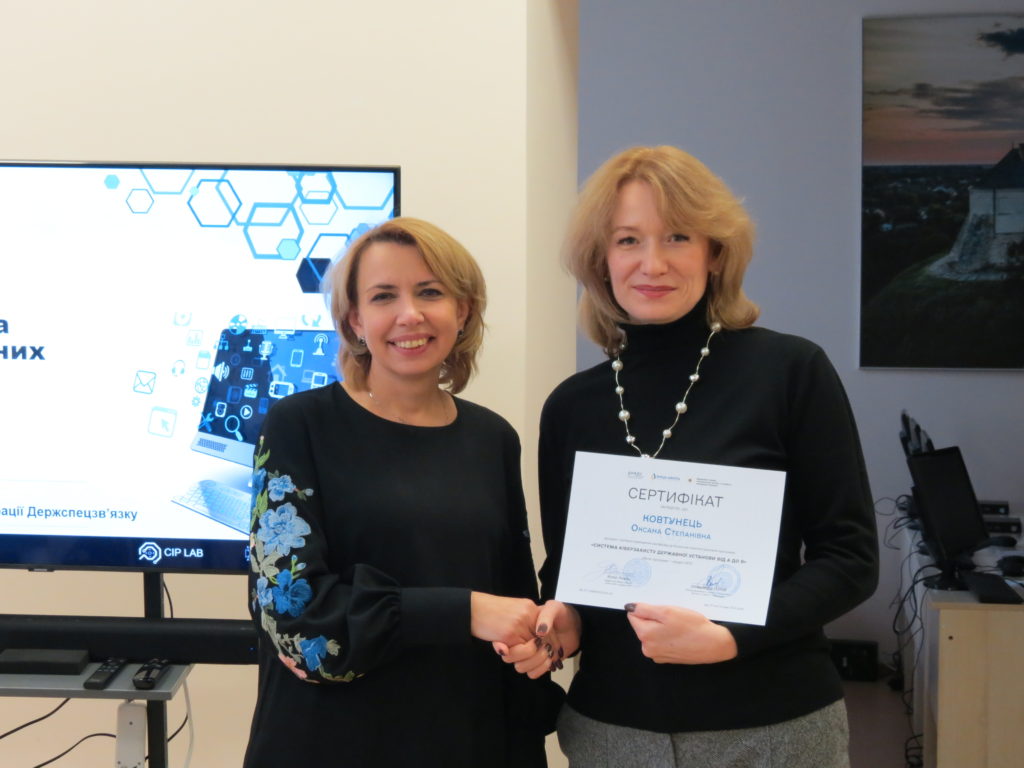
On 29 November, the third stream of the training course ‘Cybersecurity System of a State Institution from A to Z’ for civil servants of category A was completed. The programme was implemented by the High School of Public Governance in cooperation with the State Service for Special Communications and Information Protection of Ukraine with the support of the National Agency of Ukraine on Civil Service and the EU project ‘Support to Comprehensive Public Administration Reform in Ukraine’ (EU4PAR 2).
The course, which ran from 8 to 29 November, was part of a systematic approach to cybersecurity training. The course was attended by CDTOs from various government agencies, who had the opportunity to master both theoretical and practical aspects of cyber defence.
The programme included a detailed consideration of issues related to the organisation of cyber defence in institutions based on current legislation and guidelines. Particular attention was paid to cryptographic methods of data protection, as well as their practical application in real life. In addition, the participants learnt how to build an integrated information security system (ISIS) and mastered modern software solutions, including the use of open source software.
A special feature of this training course was its practical focus. Thanks to a harmonious combination of theoretical knowledge and practical tasks, the participants acquired the necessary skills to implement advanced cybersecurity solutions in their institutions.
Yuliia Lykhach, Head of the High School, noted that effective leadership in organising cyber defence of state institutions is a key factor in their resilience to modern hybrid threats, especially in the face of a full-scale invasion. She stressed the importance of a systematic approach to information security management, which helps ensure the smooth functioning of state institutions and support for good governance even in times of war.
During the year, a number of initiatives were implemented, including long-term cyber incident response programmes for civil servants, short-term cyber hygiene courses, and the development of a cybersecurity culture. In total, more than 800 people were able to improve their skills.



